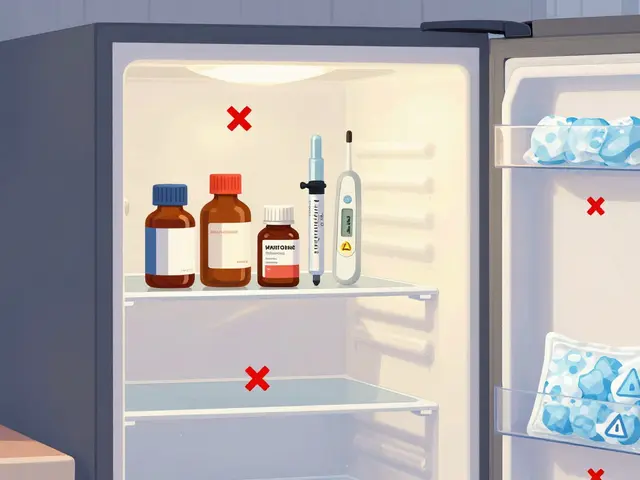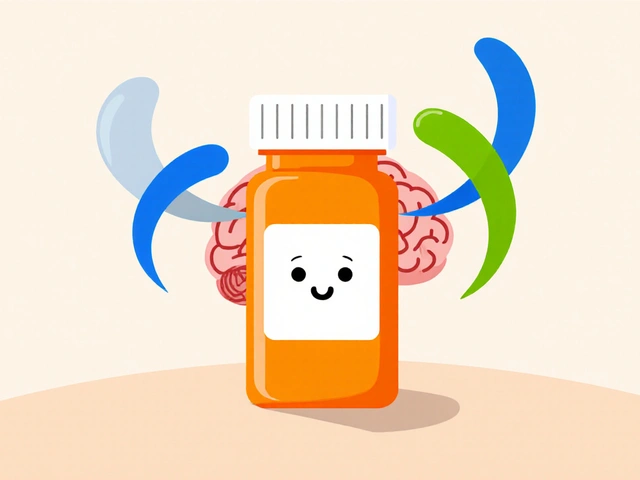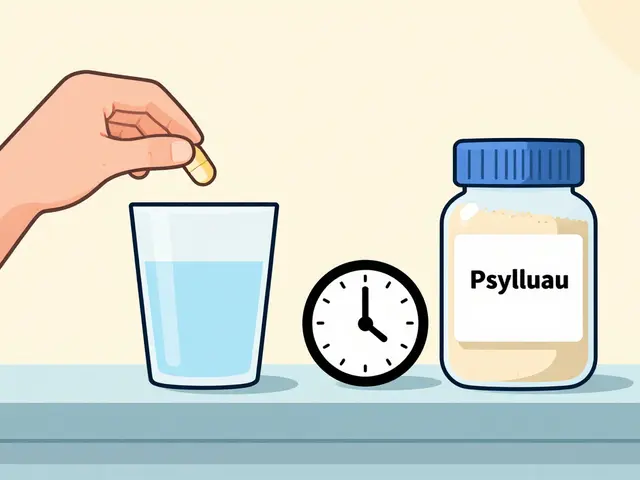IBS-D: Quick Guide to Symptoms, Triggers, and Relief
If your stomach’s doing a constant sprint and you’re sprinting to the bathroom, you might be dealing with IBS-D. It’s the diarrhea‑heavy side of irritable bowel syndrome, and it can mess with work, travel, and even a night out. The good news? Small changes and a bit of know‑how can dial down the chaos. Below is a no‑fluff rundown of what to watch for and what you can actually do right now.
What Does IBS-D Feel Like?
First off, IBS‑D isn’t just “run‑ny thing.” It usually shows up with frequent loose stools (often more than three a day), sudden urges, and abdominal cramps that feel like a tightening band. You might notice bloating after meals, gas, or a feeling that your gut never fully empties. These symptoms tend to come and go, sometimes triggered by stress, certain foods, or even a change in routine.
Because the gut and brain talk a lot, anxiety or a stressful day can amplify the symptoms. Likewise, a night of heavy, fatty meals can leave you running to the bathroom first thing in the morning. Knowing your personal pattern—what makes it worse and what eases it—helps you stay one step ahead.
Everyday Tips to Tame the Upset
1. Slow down your carbs. High‑FODMAP foods like wheat, onions, garlic, beans, and some fruits can ferment in the gut and boost gas and stool looseness. Try a low‑FODMAP trial for two weeks and keep a simple food diary. You’ll spot the culprits fast.
2. Stay hydrated. Loose stools drain fluids quickly, so sip water, electrolytes, or clear broth throughout the day. Avoid sugary sodas and limit caffeine, which can worsen dehydration.
3. Fiber, but the right kind. Soluble fiber (found in oats, bananas, and psyllium) can bulk up stools without the gas that insoluble fiber (like bran) sometimes creates. Start with a teaspoon of psyllium mixed in water and see how you feel.
4. Mind your gut‑soothing foods. Plain yogurt with live cultures, kefir, or a small amount of fermented veggies can help balance gut bacteria. If dairy triggers you, pick lactose‑free versions.
5. Stress‑management matters. A quick five‑minute breathing exercise, a short walk, or a brief meditation can calm the gut‑brain loop. Even a regular bedtime routine can reduce nighttime flare‑ups.
If symptoms keep pulling you in a loop despite these tweaks, it’s time to see a doctor. They might suggest a prescription medication—like antispasmodics, bile acid binders, or a low‑dose antidepressant—to calm gut motility. Never ignore blood in stool, unexplained weight loss, or severe pain; those signs need professional evaluation.
Bottom line: IBS‑D isn’t a life sentence. By tracking triggers, choosing gut‑friendly foods, and adding a few stress‑relief habits, you can shrink the daily disruption and enjoy meals without fear. Keep experimenting, stay patient, and remember that even small wins add up to big relief over time.

Curious if rifaximin can help you lose weight? Get a clear, evidence-based answer, who might benefit, risks, costs, and safer strategies in 2025.





